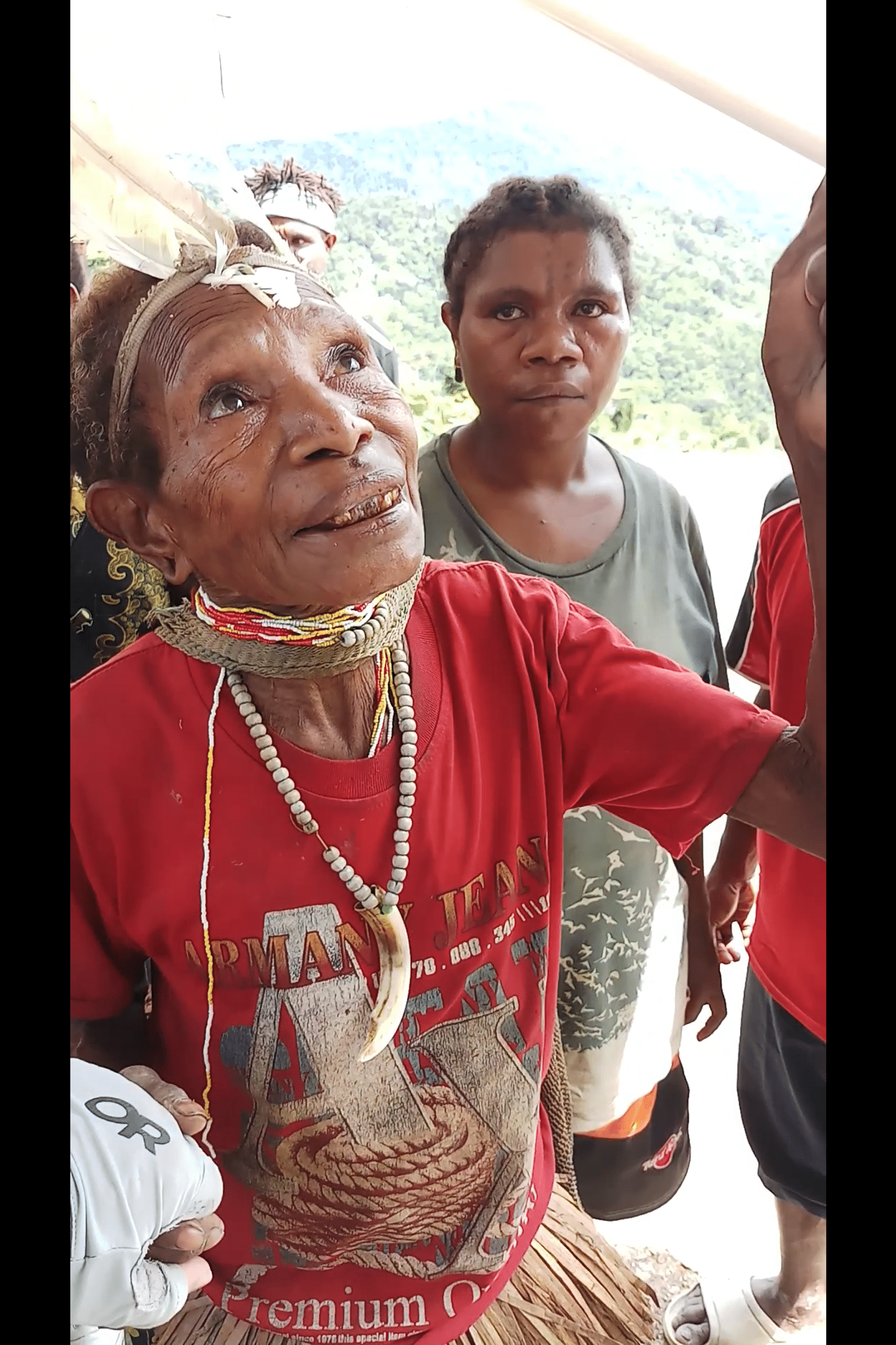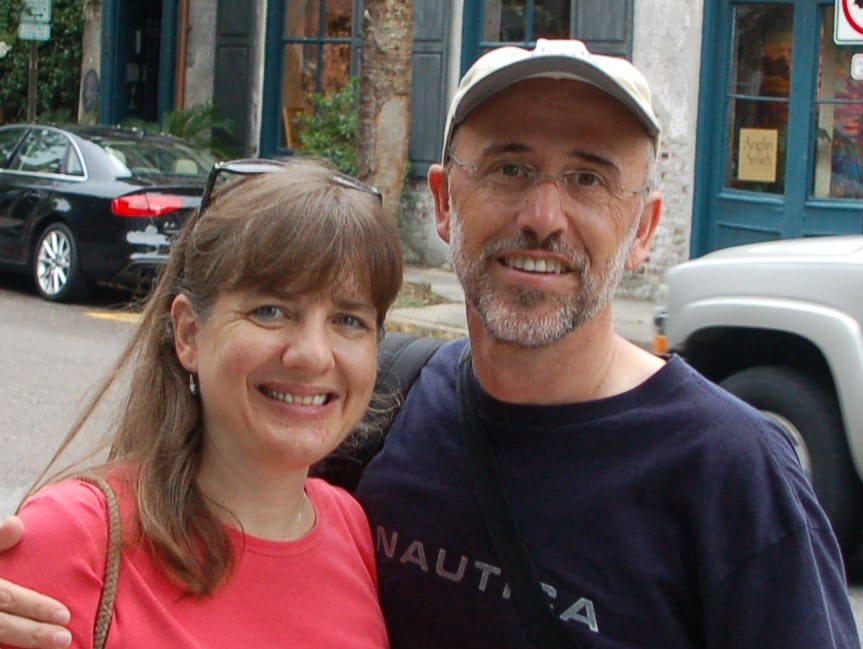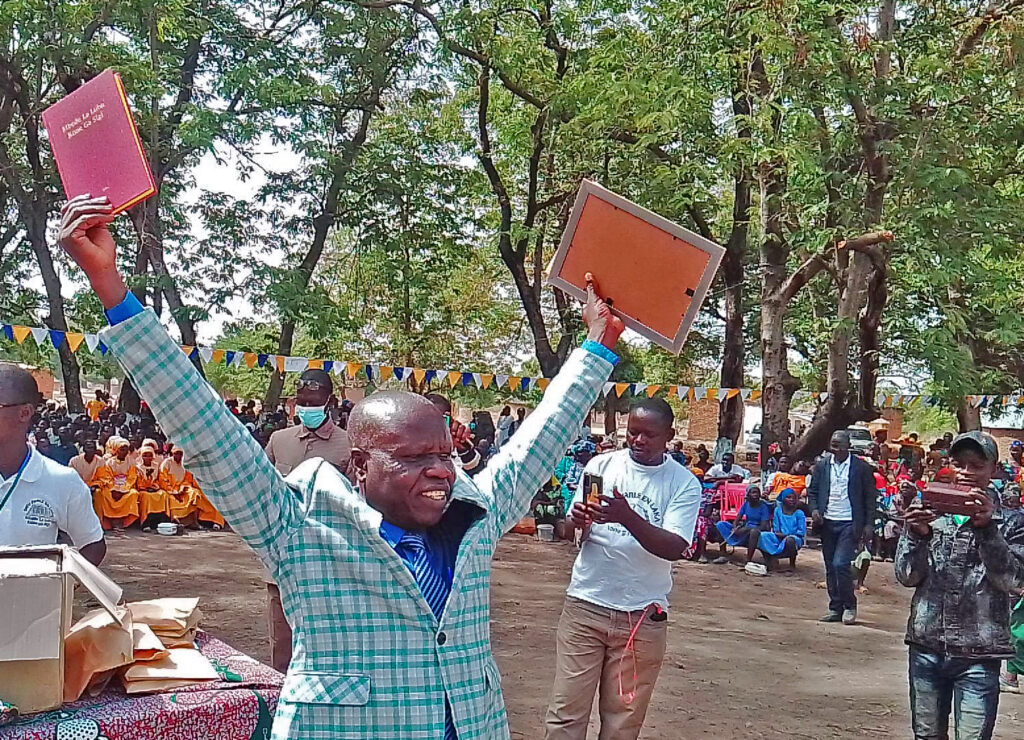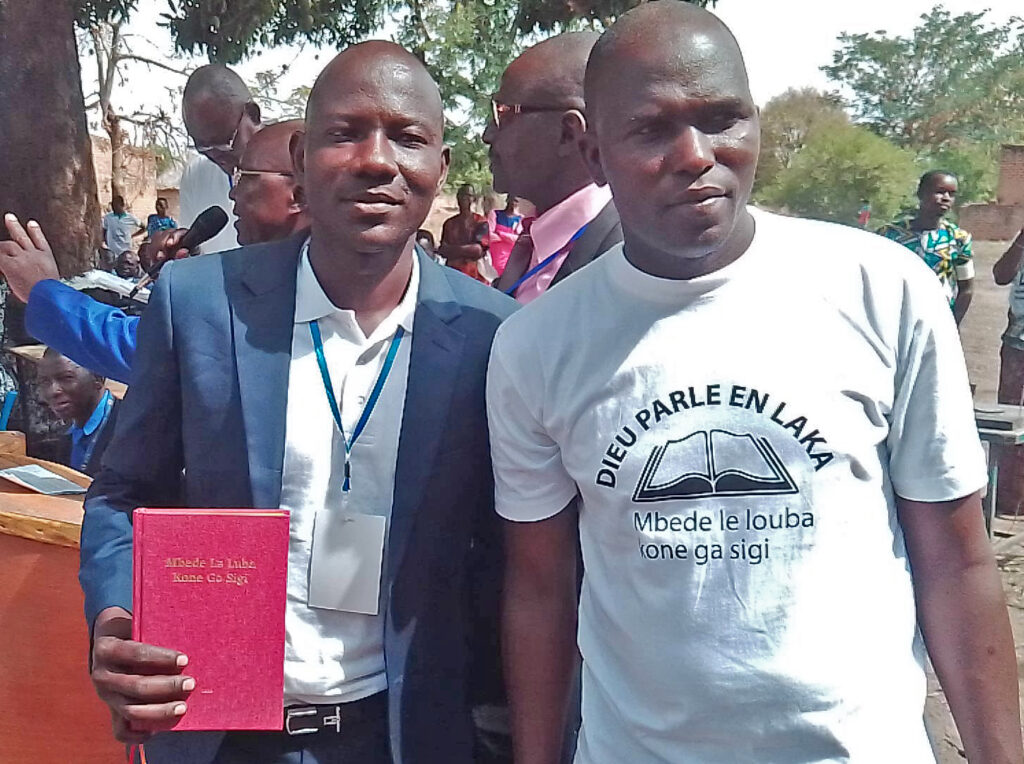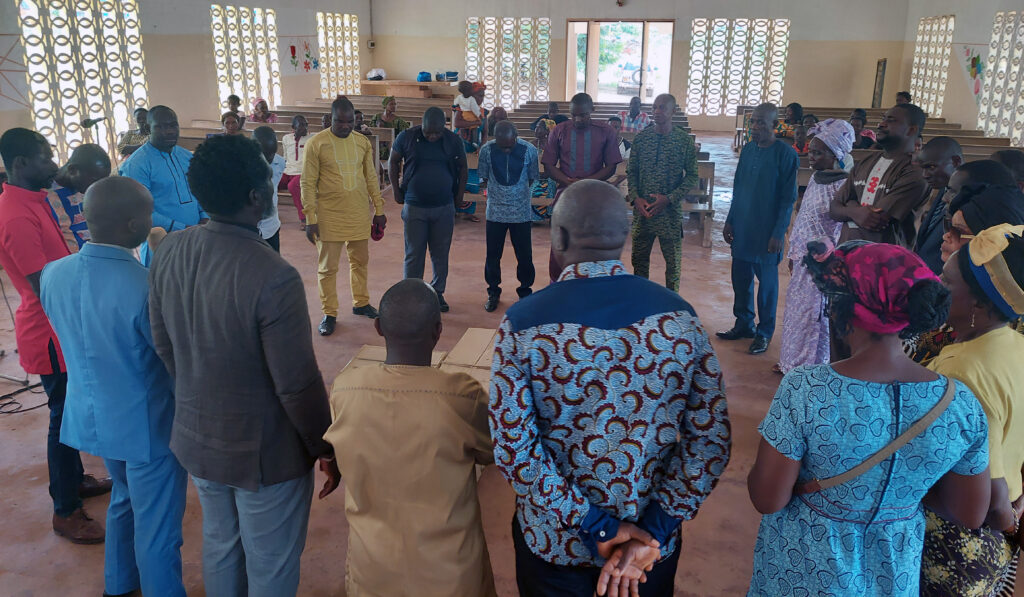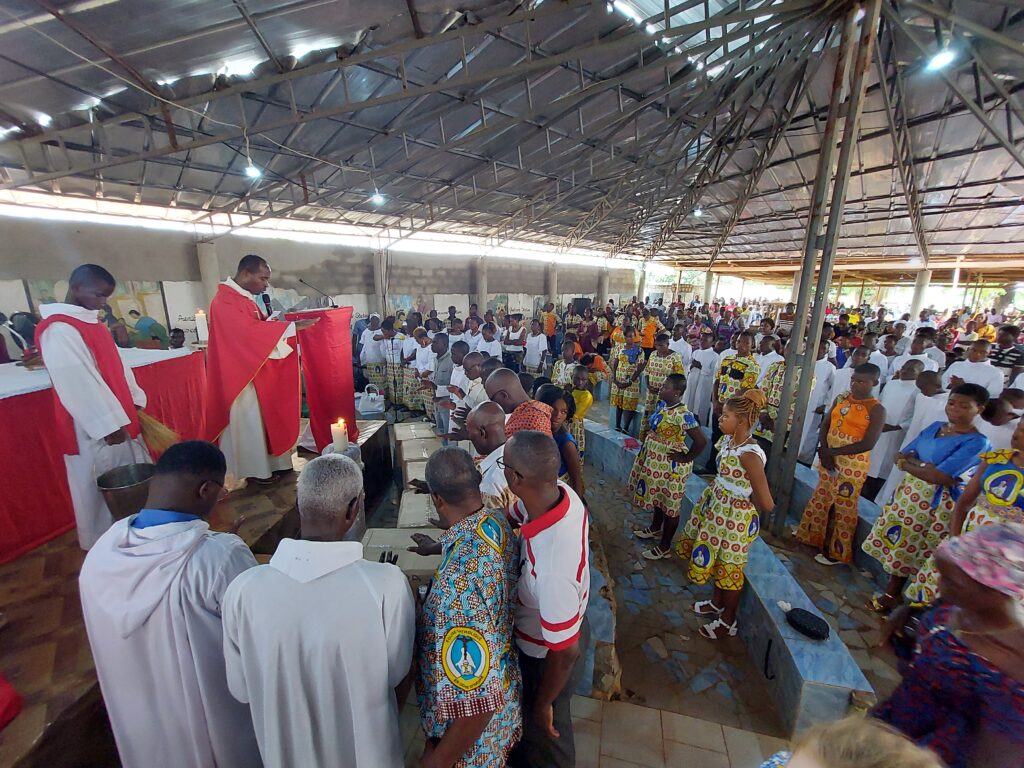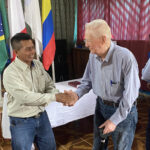Marbata Mama
God answers the prayer of an elderly woman in the mountains of Papua.
After 30 minutes of hiking pretty much nonstop uphill, Mark and I came to a bit of a clearing. I looked back at the airstrip where we had started the hike, now clearly in view. We had made it to the ridgeline that marks the last section of the final approach to Omban’s short little runway. My mind did some quick math: the airplane passes over this point ten seconds before touchdown. It had taken us 30 minutes to cover the same ground. Flying from Omban to our destination of Marbata takes two minutes. So, at this rate we should get there in … my head began to hurt. Five hours later, when we crested the last of many hills and finally saw the hamlet of Marbata, my head hurt far less than the rest of me.
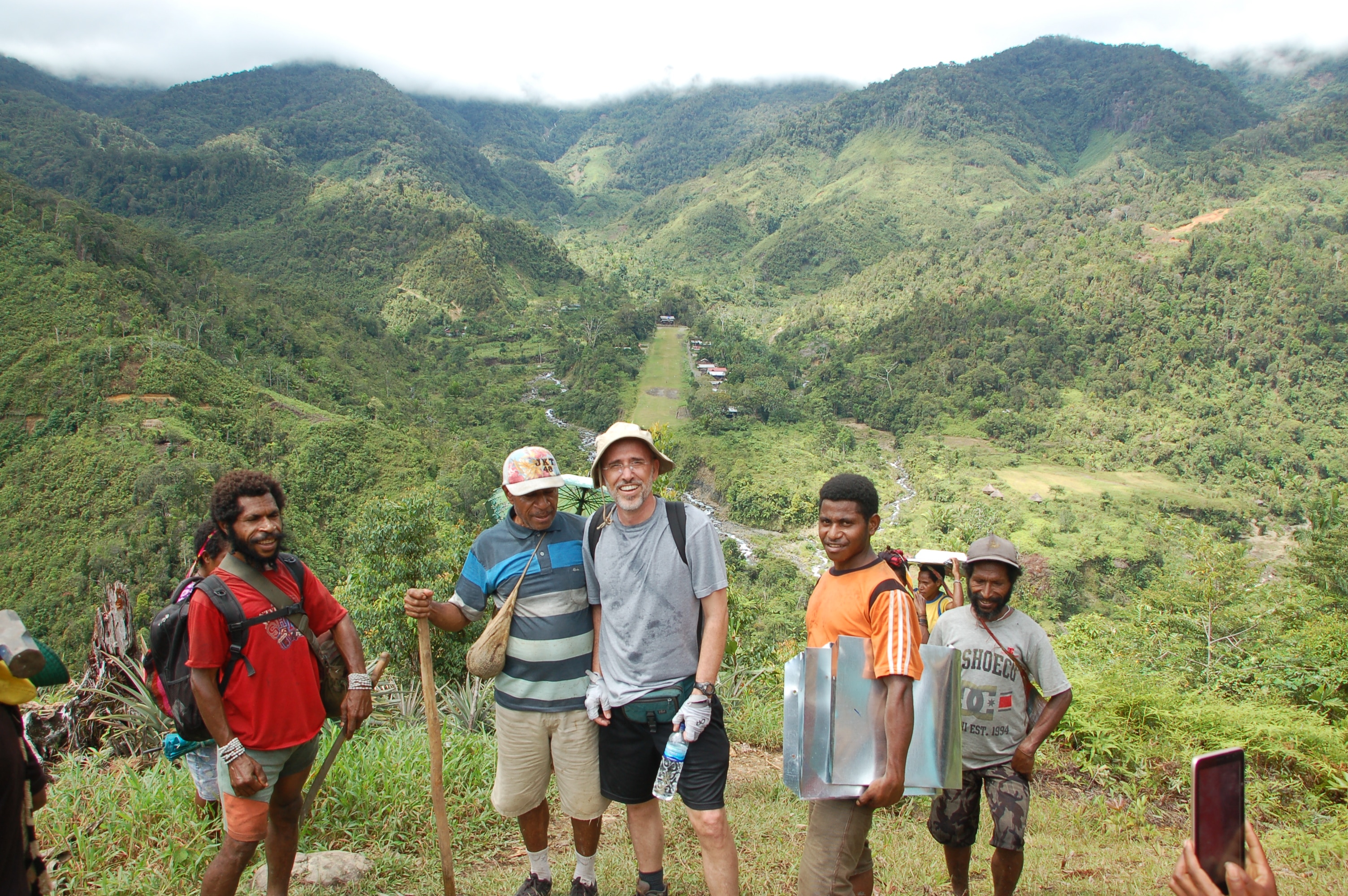
The people who live in hundreds of isolated communities in Papua’s rugged mountainous interior make hikes far longer than ours to get to the nearest airstrip for access to supplies, medicine, education and a connection to the outside world. The people of Marbata were willing to literally move part of their mountain to eliminate that isolation. My colleague, Mark, and I had made the hike from the closest existing airstrip to ensure that they had sufficiently rearranged the mountain to make landing an expensive 5,000-pound projectile on it a relatively safe proposition. The welcoming committee was something that is better experienced than described. Ecstatic. Rhythmic. Deafening.
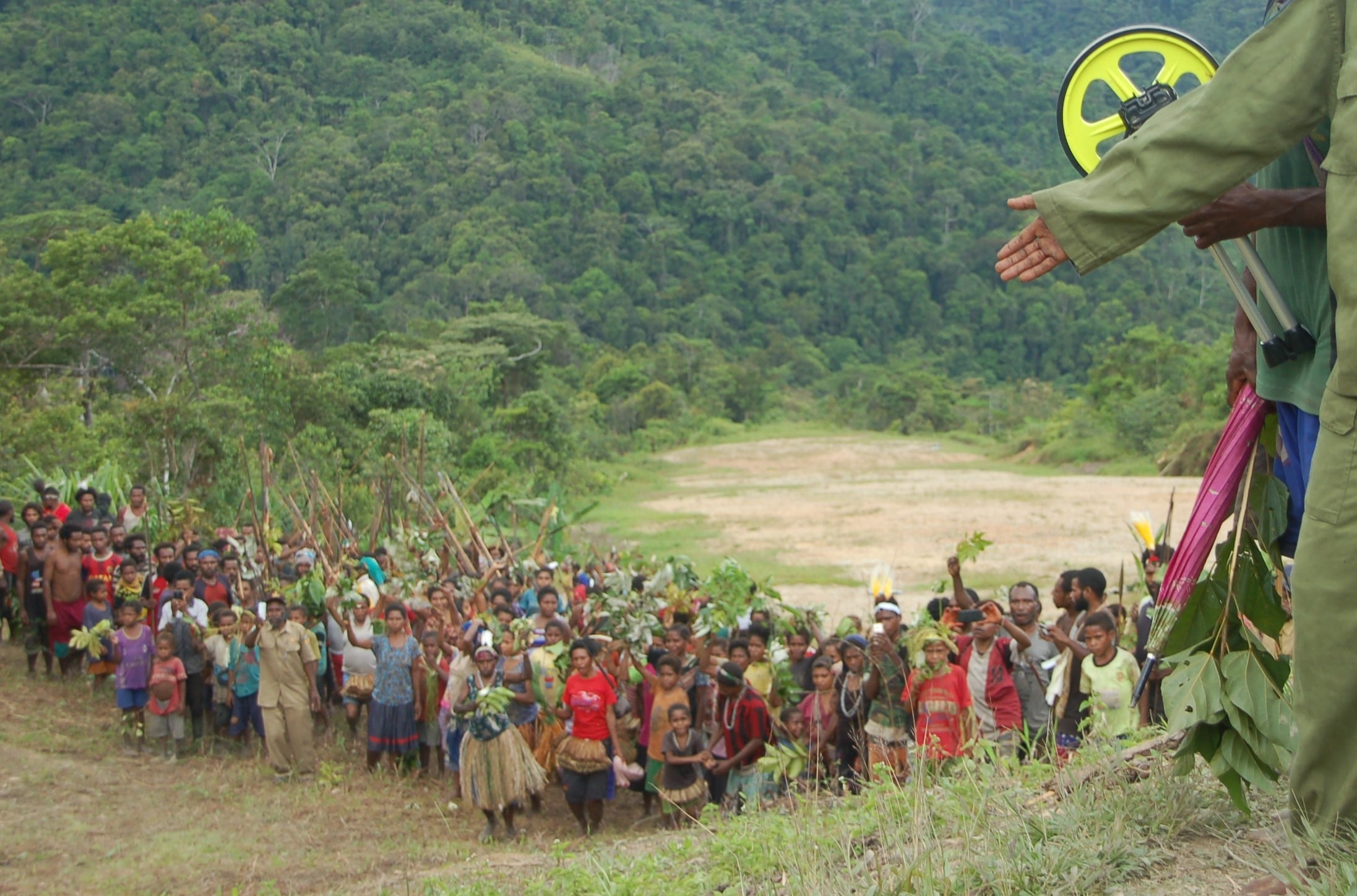
With the hubbub somewhat subsided, they led us to a roofed platform that they had built especially for the occasion. The pastor who had made the hike with us from Omban (and didn’t appear to have broken a sweat in the process) pulled out his Bible to share from the Word of God, as the entire community sat on the airstrip. Before he spoke, a tiny old woman slowly climbed the steps to the platform and came over to Mark and me. She had an ancient face but her eyes held sparkle. Someone translated the words she spoke, “I have been praying that before I die, God would allow our airstrip to be opened. Thank you for coming. I will die in peace.”
Four weeks after walking through the mountains to inspect the runway at Marbata, I had the privilege of returning. This time I took the easy way, landing an airplane on Marbata’s runway for the first time. I marveled again at the amount of work these industrious people had accomplished. They had moved truckload upon truckload of earth by hand. Crowbars—and sticks sharpened to impersonate crowbars—were their only tools.
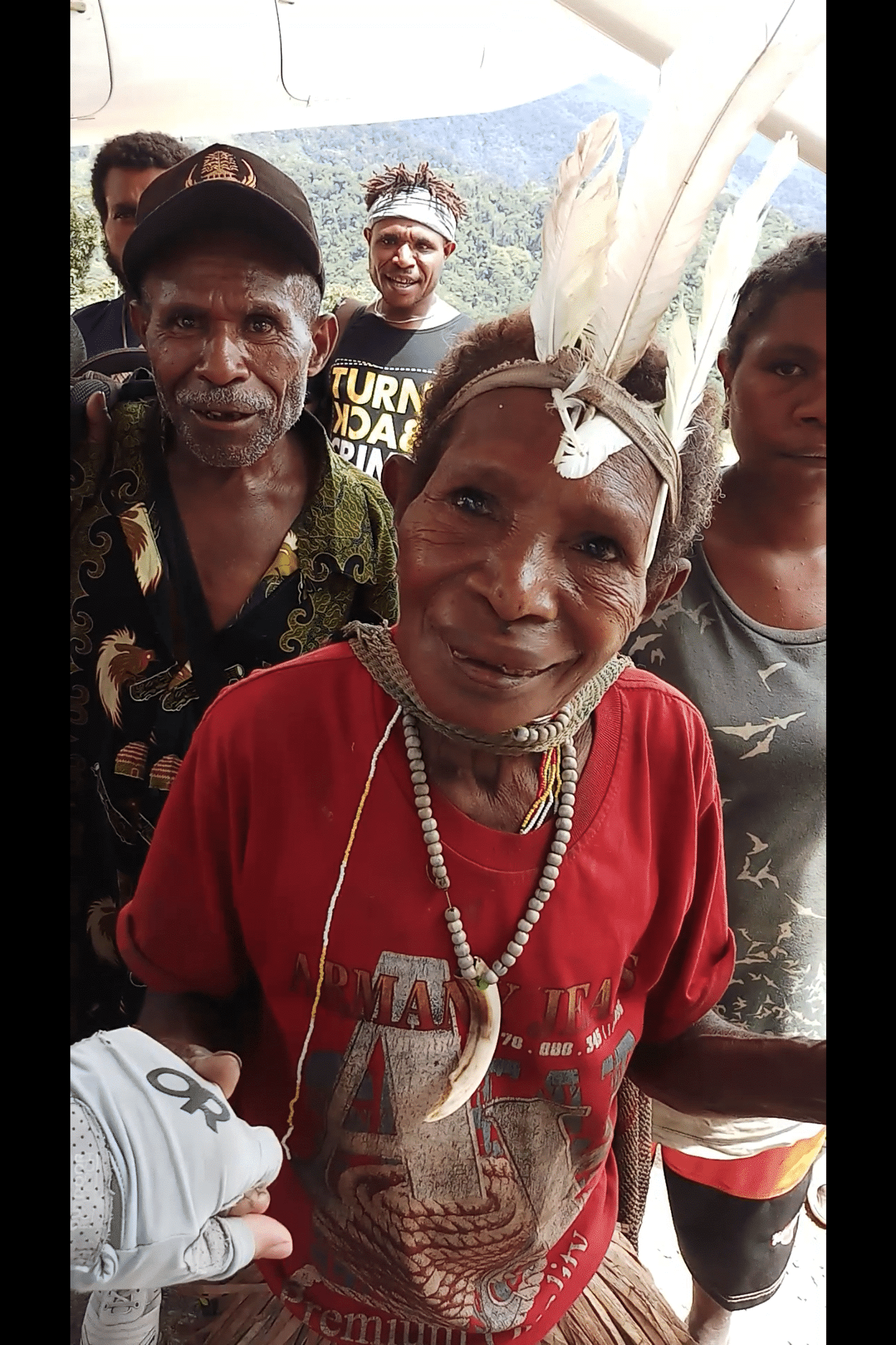
After working with the community to install runway markers, we were preparing to leave when I saw a familiar figure shuffling across the top of the runway toward the airplane, steadied on the arm of her adult daughter. She looked more feeble than when I’d last seen her a month ago, and her eyes seemed to have lost some of their sparkle.
Reaching the airplane, she clasped my hand. She had come to thank us again, but this was my time to speak. “Mama, you prayed that God would allow your runway to get opened before you go to heaven. God heard your prayers. He listens to you just like he listens to me.”
The folks standing around us did a quick translation. I saw the flash of recognition on her face, and those eyes sparkled once again. Speaking with passion, she pointed her walking stick at the heavens and said, “I prayed and God heard.”
